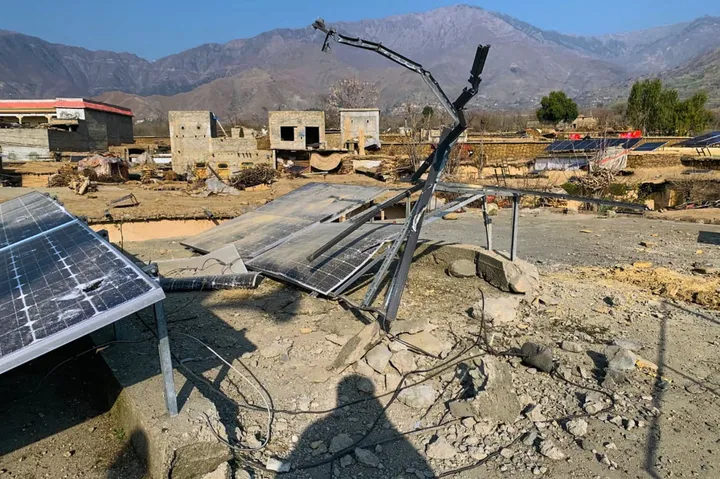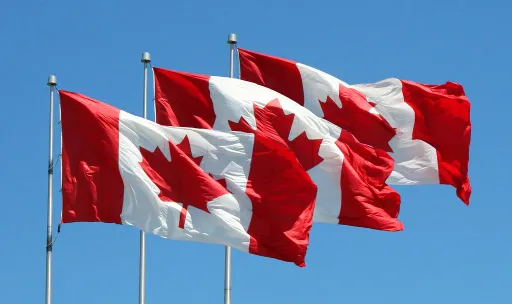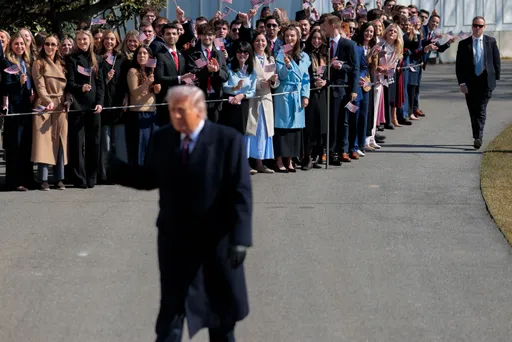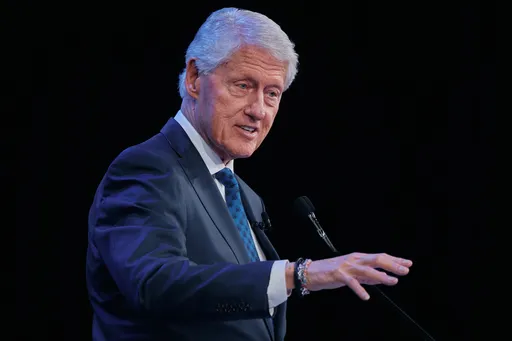In February 2020, India's capital Delhi reeled from horrific communal riots involving Hindus and Muslims. The official death toll was over 50, most of them Muslims. Hundreds of others were injured.
The impact of the violence was felt far and wide.
In Himachal Pradesh, a small state nestled in the Himalayas, 27-year-old Mayank Rawat, who goes by the name RAP ID, was deeply disturbed by the scale of bloodshed and the language of dehumanisation largely employed on social media platforms against the country's Muslim minority.
"People were sharing all kinds of hate videos, asking communities to kill off each other. I wanted to send across a message that this is not what India was made for," Rawat tells TRT World from Solan, about 300 km north of Delhi.
Rawat came out with a video inspired by American rapper Joyner Lucas's Grammy-nominated 'I'm not Racist'. He named it 'Kattarwaad', the Hindi word for extremism.
In the video, two actors, one wearing a skull cap representing Muslims and another wearing a saffron scarf and tilak on his forehead, a significant marker of Hindu faith, face each other, employing the demeaning, stereotypical tropes vilifying both communities.
The main aim of the production, Rawat says, was to puncture the echo chambers the two communities find themselves entrapped in and allow them to hear this dark, toxic language that has divided the country.
For Rawat, who is a Hindu, it is essential to counter divisive narratives and combat societal hatred.
"We should always remember that we're humans before being followers of any religion," he says.
Uploaded in March 2020, Rawat's video has garnered 5.8 million views on YouTube.
Being Muslim in Modi's India
In another experience filled with anxiety about what India was witnessing, a young Muslim rapper has been battling online hate for three years now.
Abdul Raheman Sheikh, the 22-year-old rapper, belongs to Dharavi – Asia's largest slum cluster in Central Mumbai, holding 408K subscribers on YouTube.
In 2019, when Sheikh was 17 and had barely thought of taking up rap as a profession, he and his community - Indian Muslims - were protesting against a proposed law that was highly discriminating against the community.
The new legislation was introduced by the country's far-right Hindu nationalist government under Prime Minister Narendra Modi and received widespread criticism for "marginalising" Muslims.
"When I saw my community on the road, protesting for their rights to equally exist as Indian citizens alongside Indians of other faiths, it stirred in me the idea that it was essential that our issues as a community were expressed," Sheikh tells TRT World.
"I wanted to communicate the chaos that our community was facing."
Since then, Sheikh's songs have been majorly about what Indians, especially Indian Muslims, face.
Sheikh takes up incidents like riots, hate crimes, unemployment, inflation and the sinking religious freedom in the country as topics for his songs. At 21, Sheikh talks about Muslim rights, the rights of the financially weak, and corrupt and selfish politicians in his rap songs.
At first, Sheikh received overwhelming response for his music, but soon came anti-Muslim trolls who attacked him for attacking the Modi government. Amid this online atmosphere of hate, Sheikh receives death threats against himself and his family for rapping truth to power.
"The comments section under my songs on YouTube is always filled with hateful slurs like 'mulla', 'katwa' (circumcised)," he says, referring to words often used by the Hindu right-wing to vilify Muslims.
"Even in real life, I have heard Hindus chant 'Jai Shri Ram' (a pious chant that has been turned into a war cry by the right-wing) at the top of their voices after seeing me. Their religious slogans are not my problem, but when they target me for exercising my freedom of expression - it shakes me. They use their own religious slogans as war cries against Muslims, it is painful," Sheikh adds.
In 2022, the Islamic Council of Victoria deduced that the US, UK, and India were the three highest anti-Muslim content-producing countries and identified key themes such as the association of Islam with terrorism, depiction of Muslims as perpetrators of sexual violence, the conspiracy that makes false claims that Muslim immigrants are replacing the White population in the West and Hindus in India, and the characterisation of halal as an inhumane practice that stereotypes the so-called "barbarity" of Islam.
It also stated that 55.12 percent of bigoted, anti-Muslim tweets originated in India.
Amid this atmosphere of hate, young rappers like Sheikh and Rawat are spreading the message of harmony and unity.
Politics of propaganda
Earlier this year, another rapper, Sohil Valmik, from central India's Madhya Pradesh, released a song on his YouTube channel.
The song is titled 'Saazish', which means 'conspiracy' in Urdu. Valmik said that while he was aware of anti-minority politics playing out in the country, what really moved him was when reality hit home.
After repeatedly consuming anti-Muslim content and lop-sided debates being aired on TV channels, Valmik, 23, noticed that his father, who never had harboured hatred against Muslims, started misbehaving with a Muslim milk vendor who had been selling milk to his family for several years.
Disturbed by his father's actions, Valmik penned down and produced a rap song condemning the mainstream TV channels in India for taking prejudiced positions against minorities and bolstering the ruling party's talking points.
"Pro-government media channels churn out so much hate against Muslims on a day-to-day basis that I had to pen a rap song about it. It is my contribution towards ending this hate, even if ten people get the sentiment I'm trying to further, my job is done," says Valmik, who also belongs to the Hindu community.
Miles away from Madhya Pradesh, in eastern India's Kolkata, Mirza Sahal Baig, who runs a YouTube channel by the name 'Mouz Prank' decided to produce a rap song called, 'Nayi Soch' or "new mindset" to combat the same venom of anti-Muslim hate that Sheikh, Rawat, and Valmik had been battling.
It was not just the violence against Muslims that motivated him to fight back creatively but also the Hindu friends he lost in life. "We had grown up together, but the kind of hate and propaganda against Muslims being manufactured online is massive, and this led many of my non-Muslim friends to part ways with me," Baig explains.
In 2021, far-right Hindu supremacist propaganda websites advocated for an economic boycott against Indian Muslims during the peak of the Covid-19 pandemic, exacerbating social tensions.
Baig and his colleagues produced a video around the same time, urging Indians to believe in humanity and stop being blind followers of right-wing politicians and compromised news media.
"Kolkata was never like this, my own Hindu friends have started posting anti-Muslim content on social media. I want this rap song to let people know that those instigating them are only doing so for political gains," he says.
Like everything else, the hip-hop genre is also divided in the country. While rappers like Rawat, Sheikh and Valmik are battling for an inclusive India, there is a new breed of rappers who are composing hateful lyrics, targeting minorities and galvanising divisive rhetoric of politicians through music.























